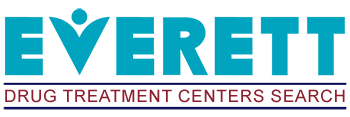Drug Addiction and Rehab in Everett, MA
Drug addiction affects people from all walks of life, many of whom need professional help in order to get clean and recover successfully. Drug addiction and rehab centers can assist with all elements of the recovery process, from the beginning of intervention and medical detox through the later stages of rehabilitation. Drug addiction and rehab centers in Everett deal with a wide array of problematic substances, including alcohol, illicit street drugs, and prescription medications.
What is Drug Addiction?
Drug addiction is a learned behavior that is maintained by brain adaptations over time. When people abuse drugs over an extended time period, the body and brain become used to them and change the way they work accordingly. The concept of addiction is closely related to the concept of dependence, a physical and psychological state typically recognized by the existence of tolerance and withdrawal symptoms when drug use is stopped. While only some substances are known to produce physical-somatic withdrawal symptoms upon cessation of use, most psychoactive substances are capable of causing distinct emotional and motivational withdrawal symptoms when drug intake is stopped or reduced.
Dependence vs. Addiction
In order to truly understand drug addiction, it’s important to make a distinction between drug dependence and drug addiction. While dependence is recognized by tolerance and the existence of a withdrawal syndrome, addiction is a more complex state characterized by severe drug cravings, psychological attachment, and compulsive use patterns. While it’s possible for someone to become dependent on their medications without developing an addiction, the opposite is not the case. Drug addictions require extensive analysis and treatment, with pharmacotherapy used when required and psychotherapy programs also initiated to address the emotional and environmental precedents of the addiction problem.
Rehabilitation
Drug addiction is typically treated through the process of rehabilitation, with this term used in two distinct ways depending on the context. While rehabilitation can refer to the entire treatment process or experience, it is also used to refer to specific outpatient and residential programs initiated after detoxification. Outpatient rehab provides patients with an opportunity to live at their usual home address while receiving treatment, with residential programs providing a more intensive live-in arrangement. A range of treatment modalities can be applied during rehab, including long-term medication treatment, cognitive behavioral therapy, 12-step facilitation, motivational incentives, relapse prevention programs and much more.
Aftercare
While detox helps people to stop using drugs and rehab helps to address the issues surrounding addiction, further measures are also needed to ensure long-term recovery. Aftercare programs include things like sober communities, group counseling, SMART Recovery, and traditional 12-step support groups such as Alcoholics Anonymous (AA) and Narcotics Anonymous (NA). These programs form a vital part of the treatment process by helping patients re-integrate with the local community in the weeks and months that follow formal treatment. Recovering drug addicts are much less likely to relapse when they have access to ongoing treatment and support services. Let Everett Drug Treatment Centers support you. Just give us a call today at (617) 553-9495 to start your journey of recovery.
